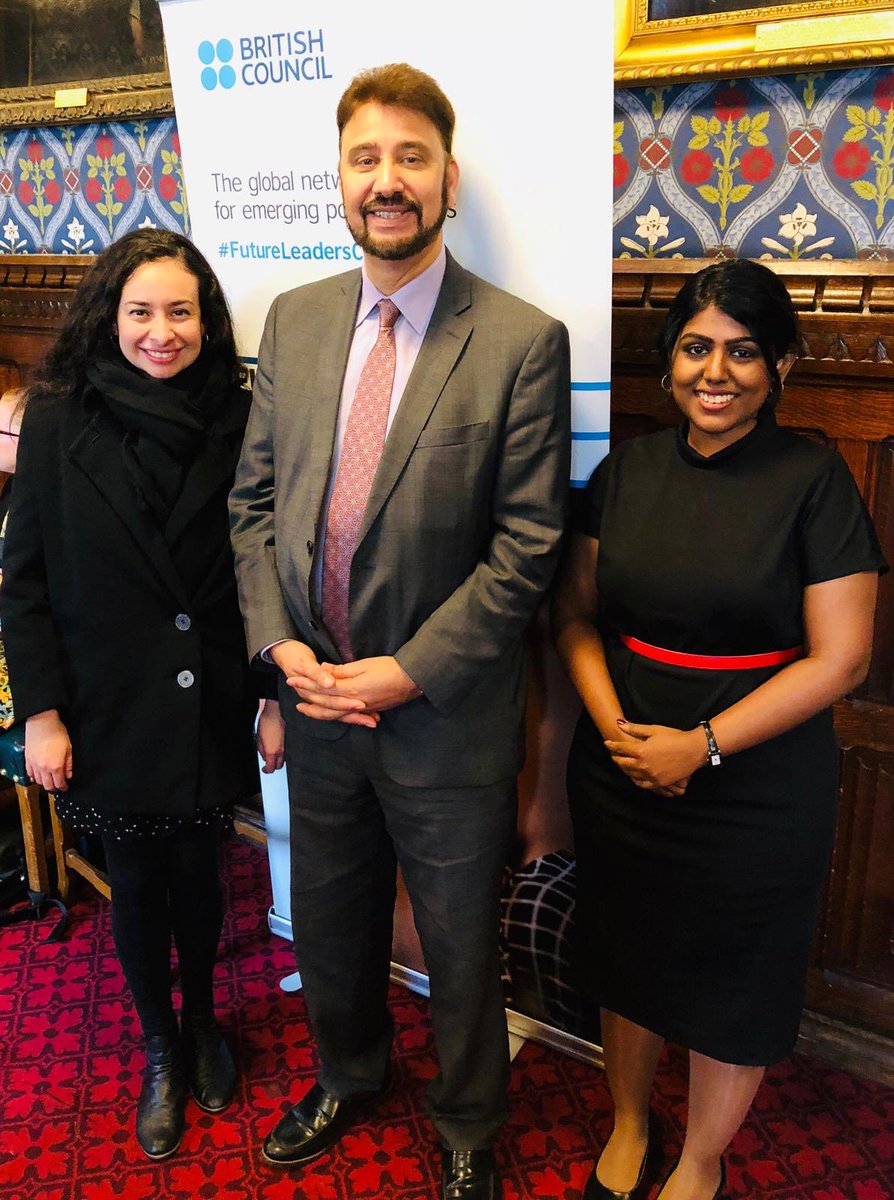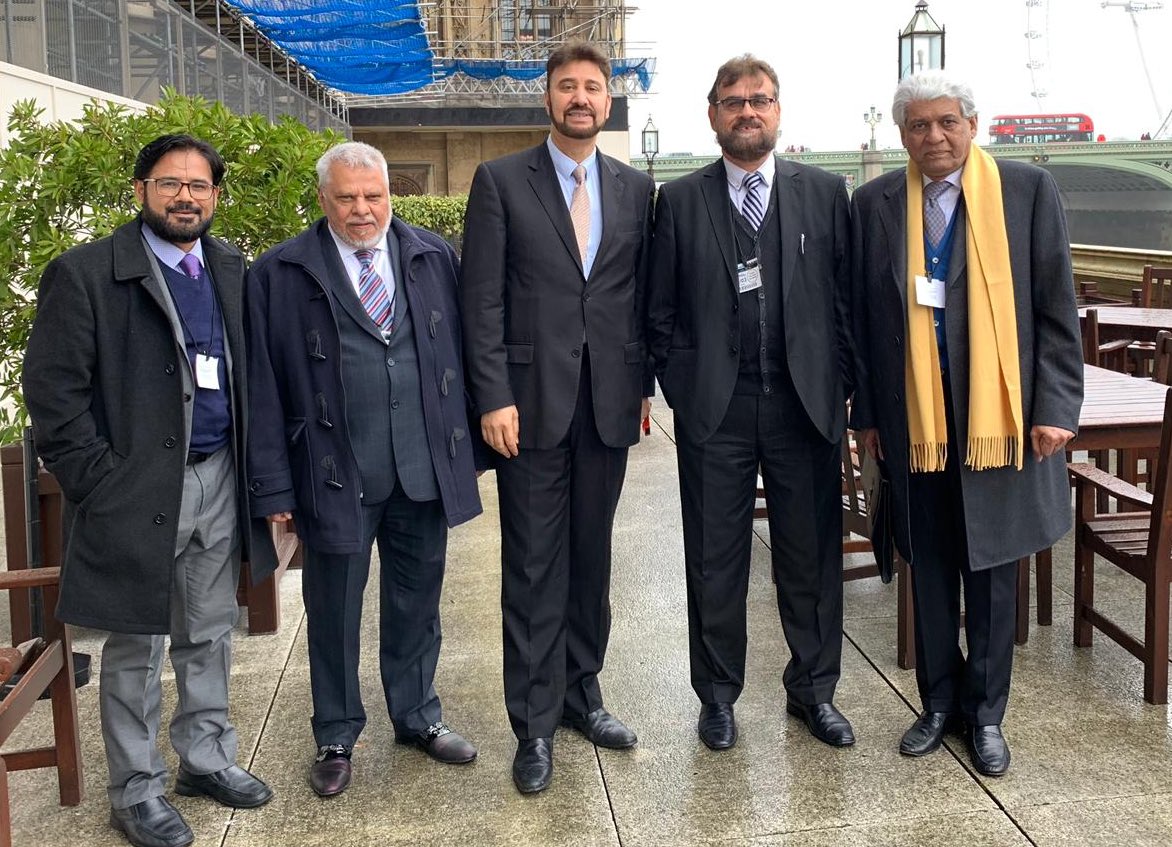Managing Editor of the Global Village Space recently sat down with Mr. Afzal Khan, who is the Member of Parliament for the Gorton constituency in Manchester. He is the Labor Party’s Shadow Immigration Minister. And for us most importantly, he is the vice-chair for the All Parties Kashmir Parliamentary Group. The interview was conducted before the trip of Prime Minister Imran Khan.
GVS: Why is the Kashmiri cause so important to you and the Labour party?
Afzal Khan: Well, I think, first of all, it is the issue of human rights. And the second is the issue of peace in the region. Both are pretty fundamental values for the Labor Party. And what we see at the moment is the height of the abuse of human rights which is taking place in Indian-occupied Kashmir.
And similarly, we feel that 70 plus years of suffering in Kashmir is surely enough time for the matter to be resolved, especially when there is a United Nations (UN) resolution standing there with a solution. So, the issue is only of implementation, and the question is why is this not taking place.
GVS: Jeremy Corbyn has taken a very strong stance in contrast to the Tory leadership. What’s propelling him to do this?
Afzal Khan: I wouldn’t say he’s taken a firm stand. I would say he’s taken a fair position. Because the two values – human rights and the peace in the world – are close to Jeremy Corbyn and the vision what he wants to see in the world. I mean I know many have attacked him for what he has said but strip it away, what he said is straightforward basic stuff.
Human rights violations must stop, and the UN resolution must be implemented. The pity I think is the British government, the Tory government, that we have now. I feel they are more interested in trade rather than in people.
And that’s our concern, and that’s why we’re piling pressure on the government that human rights are universal irrespective of whatever other interests that we may have. When there is an abuse of human rights taking place, we need to take a stand.
Read more: Breaking the Asian Glass Ceiling – Afzal Khan
GVS: What do you see at risk in Kashmir after the recent August 5th annexation by the Indian government?
Afzal Khan: Well, in the modern world context, we have never seen anything like it. Here, we are 50 days down the road; total clampdown; and if we imagine as a human that our family or anyone of us if we were locked in our own home for so many days, imagine the things that will go wrong.
Start with the basic stuff we need to live. We need food. You know, we need medication. We need to go to school; we need to work, all those little things, everyday things which we use all of us, whoever we are from whatever part of the world we are from, being denied.
And that’s what concerns us deeply. For the world to remain silent on this, for the Indian government to get away with this for so long, I think it shows where we are in the world today.
Read more: I take a special interest in issues related to my heritage: Labor MP Afzal Khan
GVS: You are vice-chair of the All Parties Parliamentary Group on Kashmir in the British parliament. What is the work of the group?
Afzal Khan: Well, the group is based on interests, there are many APPGs in the British parliament for parliamentarians who have interests in particular areas. Many of us have interests in Kashmir. It includes many who have connections with Kashmir and Pakistan and India and many other British parliamentarians.
They see this as an issue of human rights and freedom, and so they are part of it. We are trying to look at it and see what we can do to push this forward. We raise the questions like ‘what is the role the British Parliament should be playing? How can we pile pressure, on the British foreign minister and the prime minister, when we have the opportunity in the parliament. We ask questions about British policy and positions.
Can we afford two nuclear powers; I could argue three nuclear powers because China is also a party in this dispute; with Pakistan and India leading the way into a nuclear war. No, the world cannot afford this. So that’s why we have to sit down, we have to be proactive, and we need to play our part to resolve this issue.
The last session we had in the parliament, which was to do with the foreign affairs’ issues in the chamber, the first ten questions from different parliamentarians were on Kashmir, asking the foreign minister what their government is doing about it. They acknowledged and that’s a start because I remember last time when I did that, it was with the former prime minister Theresa May.
The question is that as part of the Commonwealth; what are we doing to resolve this issue, we have two commonwealth countries, Pakistan and India, who are nuclear powers. This is a huge risk and so it is in our interest, we need to develop peace there so that we can link it to prosperity, that prosperity will benefit Britain as well.
But the answer we got from the Conservative government and we keep getting is an idea of ‘neutrality’, trying to sit on the fence. Saying that, the matter between India and Pakistan is a bilateral matter and, therefore, if they ask us, we’ll get involved. That’s not what it is. If the two are coming to blows, you don’t wait to be asked. You need to be involved.
Read more: Kashmir: War of narratives & Diplomacy through Twitter
GVS: Do you not think that Britain in particular has a specific responsibility in ensuring that something is done on this matter given the historical context and the role the Viceroy played in creating this crisis in the first place?
Afzal Khan: Well, I strongly feel on this not only on the historical context that was instrumental in this mess which was left behind, but we also have to acknowledge that there is a moral duty for us to be engaged. But, I think, if you look at the broader context, there are also many other reasons why Britain should be involved.
So, let’s take the millions of British-Kashmiris, British-Pakistanis, and British-Indians taxpayers who live and are still directly connected to this part of the world [South Asia]. Similarly, we are connected to both countries because they are part of the commonwealth.
And finally, our position as a permanent member of the Security Council, and the crucial role of the Security Council to maintain peace in the world, so once again we should be engaged on the issue.
Can we afford two nuclear powers; I could argue three nuclear powers because China is also a party in this dispute; with Pakistan and India leading the way into a nuclear war. No, the world cannot afford this. So that’s why we have to sit down, we have to be proactive, and we need to play our part to resolve this issue.
Read more: Pakistan’s turn for ‘Do More”, Urges Trump Admin for action on Kashmir
GVS: How can the British public be made more aware of what’s happening in Kashmir and the human tragedy there?
Afzal Khan: I think this goes back to that issue of media. And clearly, that is an issue of media bias. The whole idea of what is news and what is its value. How come the suffering of millions of people with this clampdown for 50 days isn’t it hitting the press? You know it is happening at such a vast scale, but there has only been a little bit in the news about what is happening now.
The BBC has played their part somewhat. But is it enough – when you see many other issues, especially if you measure them through the point of view of human suffering angle – are much lower, yet the prominence they are given is greater. So that balance needs to be adjusted because at the heart of it, you know, things are changing, and they are changing in the sense that the world is becoming a global village.
We are getting more and more connected and interdependent. If anything is happening, we’re instantly aware of it. So, therefore, the news should strive to reflect that better. If the story is not giving that same prominence to serve, then the public is less likely to know. It is this balance we need to adjust.

GVS: The diaspora has played a very active role in the last couple of months. What more do you think they can do to raise this issue in Britain and the international community?
Afzal Khan: What we have seen from them is fantastic. I certainly have not seen that in the last 40 years. They are being propelled. Now they see the need and suffering which is happening in Kashmir, and they’re linking up with it. But what we need to do is have more concentration on the media side. We need to encourage more of that involvement.
We need to see how we can engage better with that – especially western media. Second is on the policy side of things, slowly but surely, many from the diaspora are getting involved in politics. So, what they now need to do is think about it, how do we influence, how do we make sure that the different political parties change their manifesto or policy – as it’s going to be shaped up now very quickly because of the election and the possibility is that soon they can include a position on Kashmir in it.
And that would then mean that there’s a commitment from major parties to the Kashmiris. So then if the government, whoever it is, when they come into power, they won’t be neutral, but it will be a manifesto pledge to do something on the issue.
Read more: Kashmir being used as a vote gathering ploy by Hindu Nationalists; Arundhati Roy
GVS: How can the British diaspora ensure that the issue of Kashmir is brought into the manifestos?
Afzal Khan: That means lobbying. That means reaching out to parliamentarians and getting whatever political representation they can on the issues that matter to them [Kashmir]. Those who are already engaged with these political parties as members, whether it is the Liberal Democrats, Scottish National Party, Labour or Tory parties; they need to interpret the system, and then they need to use it, to put emergency resolutions in front of the parties, especially at the upcoming party conferences.

To make it into a high-profile issue, they need to write in the media, so when the party people are making the policy documents, they’ll know there is pressure and then they would react. They can pressurize their members of parliament to attend sessions, If, as a member of parliament, my constituents tell me that I should attend an event which is linked to Kashmir or anything else, I will go because my constituents have asked me.
Nothing is stopping a group of them pulling together, and saying to their local member of parliament, that we would like to have a 15-minute meeting. I know, parliamentarians value this. They will see them and mark them. So, whenever there is an opportunity or a discussion, they [Member of Parliament] will then stand up and say, yes, my constituents came to me, and they have informed me that this is what is happening on the ground, and the British government should take action.
Read more: India maligns Kashmiri struggle with fabricated allegations
GVS: So, Imran Khan’s government has been very active on the international front as well as on Kashmir. Is there more that you think he could do, what direction do you think he should go in?
Afzal Khan: But the truth is, going and speaking to the Security Council and the UN, it’s not going to change anything. He won’t be the first one to go and speak there. Many others have spoken there. What we should be looking at is what is the outcome.
And in reality, the truth is after 50 days clampdown, that we have not managed to pile enough pressure for it to be lifted. That is the reality. So, we need to be thinking well what more can we do and I think they need to up their game.
They need to be thinking about harnessing all the contacts that they may have through the foreign office staff. How are they really harnessing those connections? How to cash in using the millions of diaspora they have in different countries; in Europe and Britain and America and others; how do they use this to strengthen their lobby. So, I think more needs to be done.
Read more: Kashmir’s peace: FM Qureshi urges India to “Sit and Talk”
GVS: So, you think more needs to be done by Imran Khan, but what do you think about the Prime Minister of Azad Kashmir and his government?
Afzal Khan: Clearly on scale of things, they’re much lower down. Many countries don’t actually even recognize them. What I would say is they’ve been good at is mobilizing the community where they’re connected with. That has happened. I mean last march which happened from the Parliament Square to the Indian embassy was one of the largest I’ve seen.
The AJK Prime Minister, Raja Farooq Haider, was there. I met him in the marches. Things like that actually do help. And it does encourage. They can do more of that. I mean you have a president here who is a seasoned diplomat, and is a world-class level stuff, good experience, who can articulate, they need to make more use of him.
You know that he needs to be out there meeting people. The more he meets he can certainly put the case. He’s capable.

GVS: So, what are the goals of your Kashmir group, what more can you do to raise this issue?
Afzal Khan: Clearly, on a scale of things, they’re much lower down. Many countries don’t even recognize them. What I would say is they’ve been good at is mobilizing the community with whom they are connected. That has happened. I mean the last march which occurred from the Parliament Square to the Indian High Commission was one of the largest I have seen.
The AJK Prime Minister, Raja Farooq Haider, was there. I met him in the marches. Things like that do help. And it does encourage. They can do more of that. I mean you have a president here [AJK President Sardar Masood Khan] who is a seasoned diplomat and is world-class level stuff. He has good experience, can articulate, they need to make more use of him. He needs to be out there meeting people, to put out Kashmir’s case, he is certainly capable.
Read more: Why International Community ignores the Kashmir tragedy? Lord Nazir Answers
GVS: How can you pressurize India?
Afzal Khan: Well, India also understands this pressure idea. They have upped their game on this. They have instructed their own foreign office to appoint members across the world to counter what is happening.
I complained about the media before, but whatever little has happened, 80 percent has been against India. This is again something positive, and we need to press those buttons more so they will react to it. It does affect them because it economically damages things, and some people are actually talking now about economic boycott as well. India certainly doesn’t want that.

GVS: Do you see any possibility of an economic boycott or sanctions on India?
Afzal Khan: I think if India keeps on behaving the way it is behaving, how long can they hide from this clampdown as more and more people will be aware of this, and they will see that this is not just. And I think there will be a reaction.


